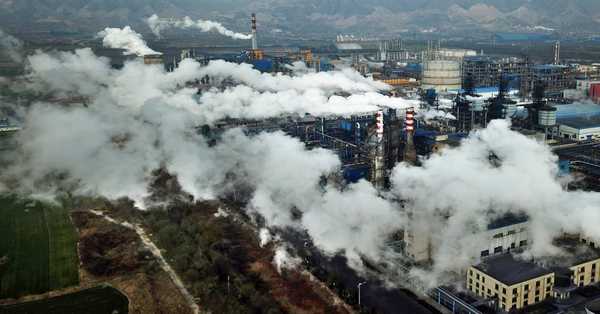Government of China turns of street lights and order to factories to turn of manufacture for half day in eastern China
In coastal Wenzhou, the government ordered some companies not to heat their offices unless temperatures are close to freezing. In southern Hunan province, workers have reported climbing dozens of flights of stairs after elevators were shut down.
Large swaths of China are scrambling to restrict electricity use this winter, as the country’s rapid economic recovery from the coronavirus pandemic and unexpectedly frigid temperatures have sent demand for power surging. Officials in at least three provinces — where a total of more than 150 million people live — have issued orders limiting energy use, warning of potential coal shortages.
Demand for coal is so high in the mining hub of Henan province that buyers have been lining up in trucks at the gates of coal mines, jostling for access, according to a recent report in the state-run news media.
Many residents have responded to the restrictions with anxiety and confusion, worrying about being left in the cold or suffering hits to their businesses.
Chinese officials have sought to remind citizens of the country’s ambitious environmental goals while reassuring them that there is plenty of energy to keep people warm and the economy humming.
“In general, please believe that our ability to ensure stable energy supply is not a problem,” Zhao Chenxin, secretary-general of the National Development and Reform Commission, which steers energy policy, said Monday.
But the drastic measures point to potential longer-term problems in China’s energy universe, as leaders juggle competing priorities.
China’s leader, Xi Jinping, has vowed to make China a climate leader and to make the country carbon-neutral by 2060. But the country still draws nearly 70 percent of its power from fossil fuels, predominantly coal, and those energy sources have helped propel China’s impressive recovery from the pandemic. By May of this year, China’s carbon dioxide emissions from energy production, cement making and other industrial uses were 4 percent higher than the year before.
“He’s got to wrestle with economic growth, economic structures, employment and the environment,” Philip Andrews-Speed, senior principal fellow at the Energy Studies Institute at the National University of Singapore, said of Xi.
Some of the present difficulties may also be self-inflicted.
Coastal areas of China depend on imported coal, including from Australia. But relations between the two countries have gone into free fall this year, as Australia has, among other things, demanded an investigation into the origins of the coronavirus, which first emerged in China. China in turn has banned imports of Australian coal — leaving huge ships stranded at sea.
Chinese officials have denied that the ban on Australian coal is responsible for the current squeeze on energy, noting that in 2018 less than 8 percent of China’s coal consumption involved imported coal; much of Australia’s coal is also used for steel and other metals, not power. But the government has also acknowledged, with rare bluntness, the scale of the problem.
“At the moment, some provinces temporarily do not have enough electricity. This is an objective fact,” one of the national government’s most powerful bodies, the entity that oversees state-owned companies, said Sunday.
The reports of shortages and restrictions began emerging earlier this month. On December 4, officials in Hunan announced that monthly electricity demand had seen double-digit growth from the previous year and would soon exceed the grid’s capacity. The shortage would last into the spring, they added.
In response, authorities ordered residents to begin rationing energy. Every day between 10:30 a.m. and noon, and 4:30 p.m. and 8:30 p.m., lighting on most building facades and billboards are to be shut down, according to the order. Office buildings will not have power during weekends. Residents were also told not to use electric stoves or ovens.
Hunan, where 67 million people live, has been unusually cold, with temperatures last week slipping below freezing.
In Jiangxi province, in the south, officials have also set out peak hours in which energy use will be limited. In Wenzhou, a city in Zhejiang province, officials said that companies would not be allowed to turn on heating until temperatures fell below 3 degrees Celsius, or 37.4 degrees Fahrenheit, and would not be allowed to set the temperature higher than 60 degrees.
